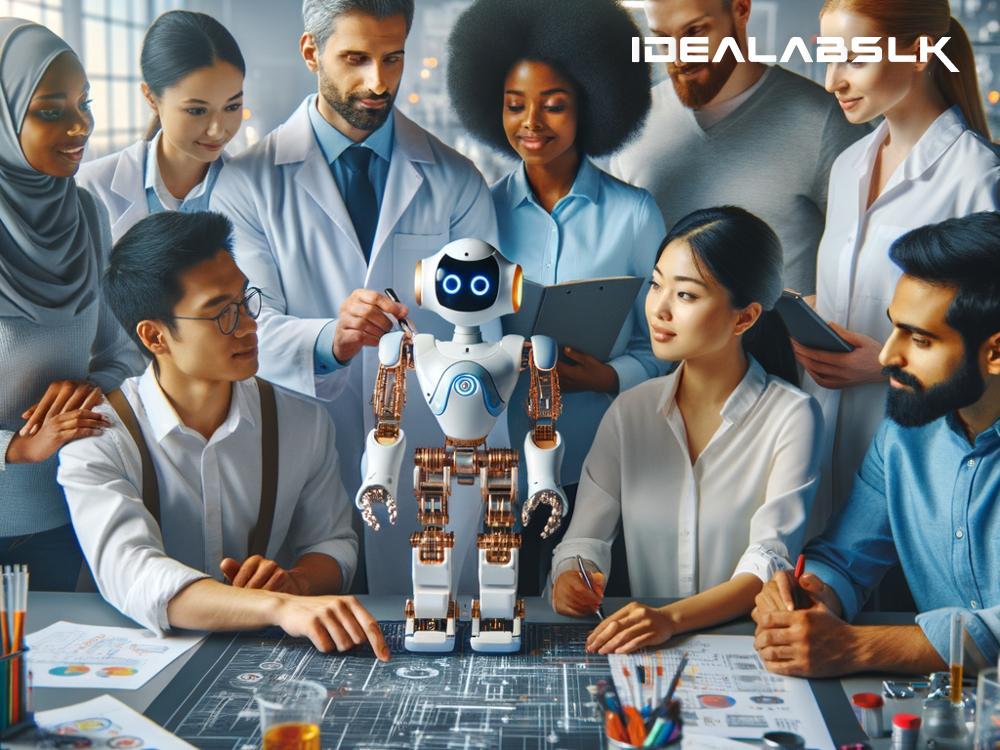The Future of Creativity: How AI Shapes New Products
In the fast-paced world of product development, a revolutionary player has emerged on the scene, transforming how we think, create, and innovate. This game-changer is Artificial Intelligence (AI), a technology that not only imitates human intelligence but in many ways, enhances it. With its capacity to analyze vast amounts of data, learn from patterns, and even predict future trends, AI is set to redefine the role of creativity in product innovation. Let's dive into how this is happening.
Breaking the Mold
Traditionally, creating a new product involved a lot of guesswork, intuition, and, frankly, crossing fingers. Design teams would brainstorm, prototype, test, and hope their vision aligned with what people wanted or needed. It was as much an art as a science. Enter AI, and the game changes. With AI, we can sift through mountains of data - from customer preferences to global trends - in moments. This isn't about replacing the human touch but enhancing it with insights that might have taken years to accumulate otherwise. This means products can be more closely tailored to meet consumer needs and even anticipate them before they're fully realized.
Speed and Efficiency
One of the most significant advantages AI offers is speed. In a world where being first to market can mean the difference between success and obscurity, AI's ability to rapidly process and analyze information can expedite the development cycle. Imagine reducing the time it takes to go from concept to prototype by leveraging AI to automate some of the most time-consuming steps. By analyzing designs, materials, and manufacturing processes, AI can identify optimal combinations that might elude human designers.
Personalization Like Never Before
In the age of customization, consumers increasingly crave products that reflect their unique preferences and needs. AI opens up new possibilities for personalization at a granular level. With its ability to learn from user interactions, AI can help companies craft products that adapt and evolve with their users. This could mean fitness equipment that adjusts to your changing workout intensity or kitchen appliances that suggest recipes based on your health goals. The potential is limitless and incredibly exciting.
Sustainability and Ethical Innovation
Now more than ever, there's a pressing need for products that not only serve our needs but do so sustainably. AI can play a pivotal role in making this a reality. From optimizing materials to reduce waste to predicting the lifespan of products, AI can help companies create innovations that are as kind to the planet as they are to their bottom line. This is crucial in building a future where technology and ecology walk hand in hand.
The Challenges Ahead
While the possibilities are intoxicating, it's essential to approach AI with a balanced perspective. Questions of ethics, privacy, and job displacement loom large. As we integrate AI into the product development process, it's critical to do so in a way that respects user data and promotes equitable outcomes.
Moreover, AI is only as good as the data it's fed. Biased data can lead to biased outcomes, casting a shadow over the promise of AI-driven innovation. It's up to us to ensure that AI serves the greater good, reflecting the diversity and richness of the human experience.
Looking Forward
As we stand on the brink of a new era in product innovation, it's clear that AI will be a central figure in shaping our future. Not as a replacement for human creativity, but as a catalyst that amplifies our potential. The integration of AI offers an opportunity to reimagine what's possible, pushing the boundaries of creativity, efficiency, and personalization.
In this journey, it's crucial to navigate the challenges with eyes wide open, ensuring that as we harness the power of AI, we do so in a way that elevates our collective experience. The promise of AI-driven innovation is not just in the products it helps create but in the future it enables us to build—one where technology serves humanity, paving the way for a world of possibilities previously only imagined.
As we embrace this future, let's do so with a spirit of exploration, mindful of the responsibilities it entails. The story of AI and product innovation is still being written, and it's up to us to ensure it's a tale that speaks to the best of what we can achieve when human ingenuity and artificial intelligence join forces. The future is ours to shape, and with AI, we have a powerful tool at our disposal. Let's use it wisely.

